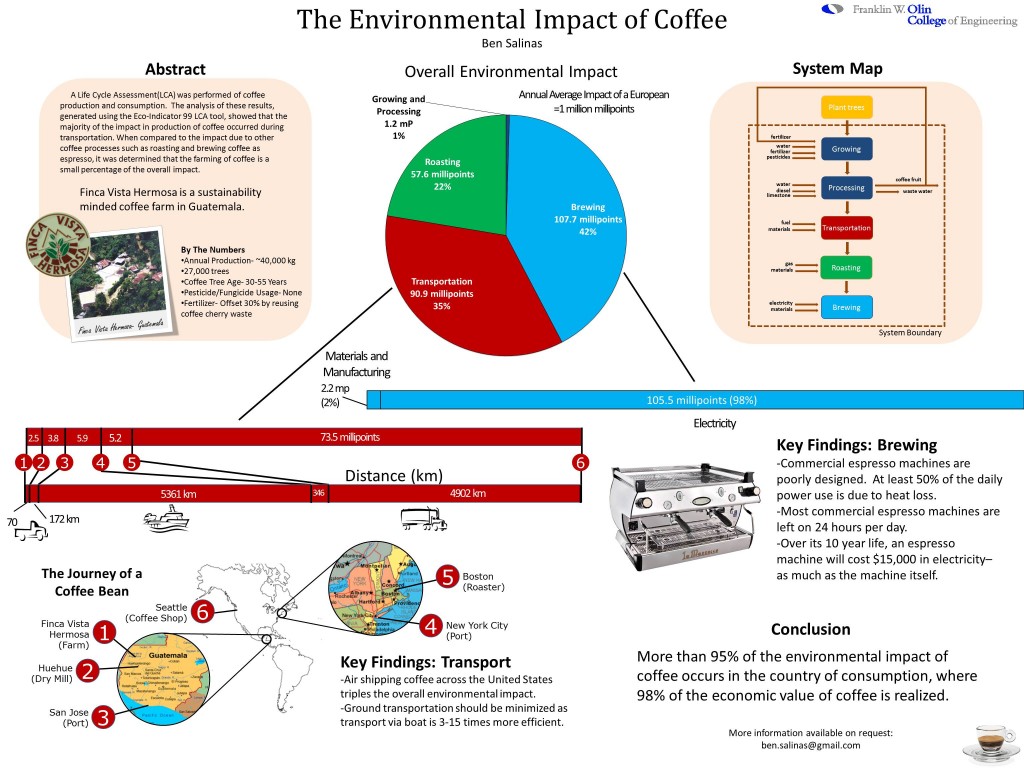Life Cycle Assessment of Coffee Production
Background
As part of my Sustainable Design (Fall2008) class, I interviewed Edwin Martinez, 3rd generation coffee farmer from Finca Vista Hermosa, a specialty coffee farm known for its award winning coffee. This research, combined with secondary research about coffee farming, led to a single factor life cycle assessment (LCA) using the Eco-Indicator 99 tool.
Results
The study looked at the environmental impact of growing, processing and transporting coffee from when it is planted on the farm to when it arrives at a roaster’s facilities in the United States. The results, presented in a paper, showed that more than 90% of the environmental impact of growing, processing, and transporting unroasted coffee to a roaster in Boston, MA was due to the impact of transportation. In addition to my quantitative LCA, I also performed a qualitative assessment of the local impact of coffee farms. This assessment looked at contaminants in waste water, toxins present in coffee processing techniques, and further analyzed the transportation utilized within the coffee production life cycle. The final version of my paper is available here.
In Spring 2009, the results of this study were combined with my earlier work on the environmental impact of espresso brewing and further research on coffee roasting and transportation to yield an LCA analyzing the impact from seed to cup. The results showed that for coffee grown at Finca Vista Hermosa, 95% of the environmental impact occurred in the country of consumption. While there was no single phase that accounted for the majority of the impact, it was very clear that the transportation, brewing, and roasting phases all played large roles while the Growing and Processing phase has virtually no impact (1%).
Based on looking at the overall system of coffee production, several heuristics were developed to help coffee professionals understand the impact areas. Additionally a concept for coffee roasters and importers on how to reduce the impact associated with transportation was presented. Below is the final version of the poster presented at undergraduate research conferences at Duke University and Harvard University in Spring 2009.
There are two further directions I plan to take this work. First is to add in a comparison to more traditional coffee farms, to see whether the impact breakdown greatly changes. Second is to add in the impact of to go cups in coffee shops.
Deliverables
 LCA of Coffee Poster(PDF)
LCA of Coffee Poster(PDF)